#russica
Text

Added to the Rolan bakery
Slight Spice
#mythings#russica#rolan#rolan got cake#caked up#bg3#baldur's gate 3#doodles#digitalart#bg3 tav#tiefling
27 notes
·
View notes
Text
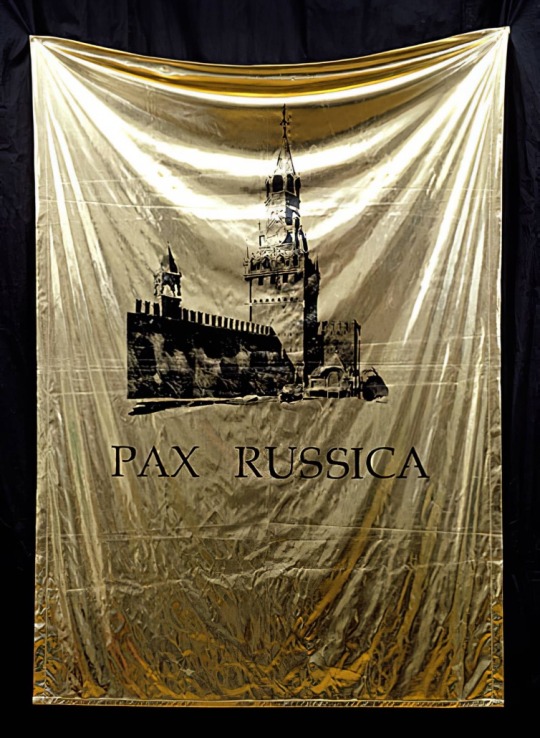
“In the same way, if I abominate tyrants, I nonetheless see that they constitute the warp of history, and that without them the idea or the course of an empire would be inconceivable. Superlatively odious, of an inspired bestiality, they suggest man driven to his limits, the ultimate exasperation of his turpitudes and his virtues. Ivan the Terrible, to cite only the most fascinating among them, exhausts every nook and cranny of psychology: as complex in his madness as in his politics, having made his reign, and to a certain degree his country, into a model nightmare, prototype of a perennial hallucination, a mixture of Mongolia and Byzantium, combining the qualities and the defects of a khan and a basileus, a monster of demoniac rages and sordid dejection, torn between bloodthirstiness and remorse, his joviality enriched with taunts and crowned with sneers, he had a passion for crime; as have we all, insofar as we exist: transgressions against others or ourselves. Only in us it remains unslaked, that passion, so that our works, whatever they may be, derive from our incapacity to kill or to kill ourselves. We do not always acknowledge as much, we are glad to ignore the cozy mechanism of our infirmities. If I am obsessed by the tsars or the Roman emperors, it is because such infirmities, concealed in us, show quite plainly in them. They reveal us to ourselves, they incarnate and illustrate our secrets. I think especially of those who, doomed to an awesome degeneration, turned on their own and, fearing to be loved by them, sent them to their doom. They were powerful, yet they were wretched, unsatiated by the terror of others. Are they not a sort of projection of the evil genius that dwells in us all and tempts us to believe we must leave nothing standing around us? It is with such thoughts and such instincts that an empire is formed: in it cooperates that subsoil of our consciousness in which are hidden our dearest faults.
(…)
Abandoning this corner of the world, the notion of empire would find a providential climate in Russia, where it has always existed, moreover - singularly on the spiritual level. After the fall of Byzantium, Moscow became, for the Orthodox consciousness, the third Rome, heir of the "true" Christianity, the true faith. First messianic awakening. The second had to wait until our own day and age; but that awakening is due, this time, to the resignation of the West. In the fifteenth century, Russia profited by a religious void, as she profits today by a political one. Two major opportunities to absorb her historical responsibilities.
(…)
Russia's claims to turn from vague primacy to distinct hegemony are not unfounded. What would have become of the West if she had not halted and absorbed the Mongol invasion? For over two centuries of humiliation and servitude, Russia was excluded from history, while the Western nations indulged themselves in the luxury of tearing each other to pieces. Had Russia been in a condition to develop unhampered, she would have become a first-rate power on the eve of modern times; what she is now she would have been in the sixteenth or seventeenth century. And the West? Perhaps today the West would be Orthodox, and Rome would enthrone not the Holy See but the Holy Synod. But the Russians can still catch up. If they manage, as there is every reason to expect, to execute their plans, it is not out of the question that they will arrange matters with the sovereign pontiff. Whether in the name of Marxism or of Orthodoxy, they are fated to foil the Church's authority and prestige - they cannot tolerate its aims without abdicating the essential point of their mission and their program. Under the tsars, identifying the Church with an instrument of Antichrist, they offered prayers against it; now, holding it to be a Satanic tool of Reaction, they overwhelm it with invectives rather more effective than their old anathemas; soon they will overcome it with all their weight and all their power. And it is not at all impossible that our age may count among its curiosities, and in the form of a frivolous apocalypse, the disappearance of St. Peter's last successor.
By sanctifying History in order to discredit God, Marxism has merely rendered Him more peculiar and more haunting. You can stifle every impulse in humanity except the need for an Absolute, which will survive the destruction of temples and even the disappearance of religion on earth. The core of the Russian people being religious, they will inevitably gain the upper hand. Reasons of a historical order will have a good deal to do with this triumph.
By adopting Orthodoxy, Russia manifested her desire to stand apart from the West; it was her way of defining herself, from the start. Never, outside certain aristocratic circles, did she let herself be seduced by the Catholic - as it happened, Jesuit - missionaries. A schism does not express the divergencies of doctrine so much as a will to ethnic affirmation: what appears in it is less an abstract controversy than a national reflex. It was not the absurd question of the filioque that divided the churches: Byzantium wanted its total autonomy; Moscow a fortiori. Schisms and heresies are nationalisms in disguise. But whereas the Reformation merely assumed the appearance of a family quarrel, of a scandal within the West, Orthodox particularism, acquiring a more profound character, was to mark a division from the Western world itself. By rejecting Catholicism, Russia delayed her evolution, lost a crucial opportunity for civilizing herself rapidly, while gaining in substance and in unity; her stagnation rendered her different, made her other; this is what she aspired to, doubtless foreseeing that the West would one day regret its head start.
The stronger Russia became, the more aware she grew of her roots, from which, in some sense, Marxism will have alienated her; after a forced cure of universalism, she will re-Russify, in favor of Orthodoxy. And, moreover, she will have stamped Marxism with a distinctly Slavic character: Marxism enSlaved. . . . Any nation of a certain scope that adopts an ideology alien to its traditions will adapt and denature it, inflect it in the direction of its own national des-tiny, distort it to its own advantage, ultimately rendering it indistinguishable from its own genius. A people possesses a necessarily distorting optic all its own, a defect of vision which, far from disconcerting it, flatters and stimulates. . . . The truths it avails itself of, whatever they may lack in objective value, are nonetheless vital and produce, as such, the kinds of errors that constitute the diversity of the historical landscape, granted that the historian - skeptical by métier, temperament, and option - is stationed, from the start, outside of Truth.
While the Western nations exhausted themselves in their struggle for freedom and, still more, in that freedom once acquired (nothing is so wearing as the possession or the abuse of liberty), the Russian people was suffering without self-expenditure; for one expends oneself only in history, and since the Russians were excluded from history, they were obliged to submit to the infallible systems of despotism inflicted upon them: an obscure, vegetative existence which allowed them to gain strength, to accumulate energy, to amass reserves, and to draw from their servitude the maximum of biological advantage. In this, Orthodoxy was a great help - but a popular Orthodoxy, admirably articulated to keep that people apart from the course of events and opposed to the official Orthodoxy which oriented the government toward imperialist aims. The double face of the Orthodox Church: on the one hand it militated in favor of the somnolence of the masses; on the other, as an auxiliary of the tsars, it wakened popular ambitions and made possible enormous conquests in the name of a passive population. Fortunate passivity, which assured the Russians their present predominance, fruit of their historical belatedness. Whether favorable or hostile to them, all of Europe's enterprises hinge on them; once she puts them at the heart of her interests and her anxieties, she acknowledges that they have the potential to dominate her. Thus is virtually realized one of the Russians' oldest dreams. That they have attained it under the auspices of an ideology of foreign provenance adds the spice of a further paradox to their success. What matters, finally, is that the regime be Russian, and entirely in the traditions of the country. Is it not revealing that the Revolution, a direct product of Occidentalist theories, was increasingly oriented toward Slavophile ideas? Moreover, a people represents not so much an aggregate of ideas and theories as of obsessions: those of Russians, whatever their political complexion, are always, if not identical, at least related. A Tchaadaev who found no virtue in his country or a Gogol who mocked it pitilessly was just as attached to it as a Dostoevsky. The most extreme of the Nihilists, Netchaiev, was quite as obsessed by it as Pobiedonostsev, procurator of the Holy Synod and a reactionary through and through. Only this obsession counts. The rest is merely attitude.
For Russia to adapt to a liberal regime, she would have to weaken considerably - her vigor would have to decline; better still: she would have to lose her specific character and denationalize in depth. How would she manage this, with her unbroached internal resources and her thousand years of autocracy? Even if she were to achieve such a thing in one bound, she would instantly disintegrate. Even more than a nation, an empire, if it is to survive and to flourish, requires a certain dose of terror. France herself could invest in democracy only when her springs were beginning to loosen, only when, no longer seeking hegemony, she was preparing to become prudent and respectable. Her First Empire was her final folly. Thereupon, accessible to liberty, she would become painfully accustomed to it, through a number of convulsions, unlike England, which - a bewildering example - had free relations of long standing, without shocks or dangers, thanks to the conformism and the enlightened stupidity of her citizens (the country has not produced, to my knowledge, a single anarchist).
In the long run, time favors the fettered nations which, amassing forces and illusions, live in the future, in hope but what can be hoped for in freedom - or in the regime which incarnates it, constituted of dissipation, serenity, and spinelessness? A marvel that has nothing to offer, democracy is at once a nation's paradise and its tomb. Life has meaning only in democracy, yet she lacks life. . . . Immediate happiness, imminent disaster inconsistency of a regime to which one does not adhere without falling on the horns of an agonizing dilemma.
Better furnished, more fortunate, Russia need not face such problems, absolute power being for her, as Karamzin already remarked, the "very basis of her being." Ever aspiring to freedom without ever attaining it - is this not her great superiority over the West, which, alas! has long since attained to it? Russia, moreover, is not ashamed of her empire; quite the contrary, she dreams only of extending it. Who more than Russia has hastened to profit by the acquisitions of other peoples? The achievements of Peter the Great, even those of the Revolution, participate in an inspired parasitism. And it is true that she endured even the horrors of the Tartar yoke with a certain ingenuity.
(…)
Whether she has provoked or suffered, then, Russia has never been content with mediocre misfortunes. The same will be true of her future: she will fall upon Europe by a physical fatality, by the automatism of her mass, by her superabundant and morbid vitality so propitious to the generation of an empire (in which a nation's megalomania is always materialized), by that health of hers, crammed with the unforeseen, with horrors and enigmas, allocated to the service of a messianic idea, rudiment and prefiguration of all conquests. When the Slavophiles asserted that Russia must save the world, they were employing a euphemism: one hardly saves a world without ruling it. As for a nation, it finds its life-principle in itself or nowhere: how would it be saved by another? Russia still thinks - secularizing the Slavophiles language and their conception - that it is her task to ensure the world's safety, the West's first of all, toward which, moreover, she has never experienced a clear-cut feeling, only attraction and repulsion, and jealousy (that jumble of secret worship and ostensible aversion) inspired by the spectacle of a corruption as enviable as it is dangerous, contact with which is to be sought - but still more to be shunned.
Reluctant to define himself and to accept limits, cultivating ambiguity in politics, in morals, and, more seriously, in geography, with none of the naivetés inherent in "civilized men" rendered opaque to reality by the excesses of a rationalist tradition, the Russian, subtle by intuition as much as by the age-old experience of dissimulation, is perhaps a child historically, but in no case psychologically; whence his complexity as a man of young instincts and old secrets - whence too the contradictions, exacerbated to grotesquerie, of his attitudes. When he decides to be profound (and he succeeds quite effortlessly), he disfigures the slightest fact, the merest idea. It is as if he has the mania of a monumental grimace. Everything is dizzying, dreadful, and ineffable in the history of his ideas, revolutionary or otherwise. He is still an incorrigible amateur of utopias; now, utopia is the grotesque en rose, the need to associate happiness - that is, the improbable - with becoming, and to coerce an optimistic, aerial vision to the point where it rejoins its own source: the very cynicism it sought to combat. In short, a monstrous fantasy.
That Russia is in a position to realize her dream of a universal empire is a likelihood but not a certitude; on the other hand, it is patent that Russia can conquer and annex all Europe, and even that she will proceed to do so, if only to reassure the rest of the world. . . . She is content with so little! Where to find a more convincing proof of modesty, of moderation? The tip of a continent! Meanwhile, she contemplates it with the same eye with which the Mongols regarded China and the Turks Byzantium - with this difference, though, that she has already assimilated a good many Western values, whereas the Tartar and Ottoman hordes had only a wholly material superiority over their future prey. It is doubtless regrettable that Russia has not passed through the Renaissance: all her inequalities derive from that. But with her gift for making up time, she will be, in a century, perhaps in less, as refined, as vulnerable as that post-Renaissance West, at a level of civilization that can be outdone only by descending. History's supreme ambition is to record the variations of this level. Russia's, inferior to that of Europe, can only rise, and Russia with it: which is as much as to say that she is doomed to ascent. By rising, however, does she not risk, unbridled as she is, losing her equilibrium, bursting into ruins? With her millions of souls kneaded by sects and by steppes, she gives a singular impression of space and of claustration, of immensity and of suffocation, of the North in short, but of a special North, one irreducible to our analyses, a North marked by a sleep and a hope that make us tremble, by a night rich in explosions, by a dawn we shall remember. No Mediterranean transparency and gratuitousness in these Hyperboreans whose past, like their present, seems to belong to a different duration from ours. Facing the West's fragility and renown, they experience an embarrassment, the consequence of their belated awakening and of their unemployed vigor: this is the inferiority complex of the strong. . . . They will escape it, they will overcome it. The sole point of light in our future is their nostalgia - so secret and so intense - for a delicate world of deliquescent charms. If they accede to it (as appears to be the obvious direction of their fate) they will be civilized at the expense of their instincts and - delightful prospect - they too will be infected with the virus of liberty.
The more humane an empire becomes, the more readily there develop within it the contradictions by which it will perish. Of composite demeanor, of heterogeneous structure (the converse of a nation, that organic reality), an empire requires, to subsist, the cohesive principle of terror. If it lays itself open to tolerance, that "virtue" will destroy its unity and its power, and will act upon it in the manner of a deadly poison it has administered to itself. This is because tolerance is not only the pseudonym of freedom, but also of mind; and mind, even more deadly to empires than to individuals, erodes them, compromises their solidity, and accelerates their collapse. Hence it is the very instrument an ironic providence employs to destroy them.” - Emil Cioran, ‘History and Utopia’ (1960) [pages 21 - 33]
2 notes
·
View notes
Text
Unexpecected Care
Raphael x GN!Tav/Reader
⋆˙⟡♡ Summary:
⋆˙⟡♡ Notes: A gift for @russica <3 Thank you so much for the little goober art! Hope you enjoy this xoxo
⋆˙⟡♡ Soft Raphael | Bathing With The Cambion | Tender | Comfort
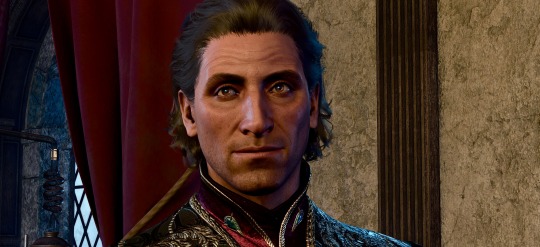
During evenings like these, Raphael frequently experienced a deep desire for your contact, a sentiment he consistently kept silent, wary of the potential exposure of his innermost feelings. He felt a sense of unease at the thought of being so vulnerable. However, fate has a peculiar sense of humor.
When he entered his boudoir, he was greeted by a vision that evoked a strange sensation within his soul. There you were, positioned at the center of the room, draped in dirt and with blood smeared across your visage.
You sighed, exhaustion weighed heavily upon you, and in this moment, all you sought was the presence of the devil you had grown so accustomed.
“To what do I owe the pleasure of this unorthodox intrusion, adorned as you are in such a... Feral state?”
He stepped closer, his gaze swept over your unkept appearance, and for a fleeting moment a crease of genuine concern furrowed his brow as he observed a droplet of blood trail down from your cheek. His voice, momentarily stripped of its affected grandeur, carried a note of unusual sincerity, “What befell you, my little mouse.”
The trace of worry in the devil's eyes, Raphael's concern, prompted a gentle smile to bloom across your face.
“No need to fret, my devil,” you murmured, your arms lifting up as a way to show you’re fine, “It's not my blood. Your little mouse is perfectly fine.”
He extended his hand, invitingly, “Come,” he urged in a gentle command that you found yourself unable to resist. As your hand slipped into his, the unexpected gentleness of his grasp contrasted sharply with the usual firmness you had come to associate with him.
He led you to his healing bath, a haven designed for restoration and peace. His voice, low and soothing, issued another instruction, “Turn,” to which you complied without hesitation.
As he carefully began to peel away your soiled clothing, his expression soured upon discovering that not all the blood was foreign. The sight of the small lacerations on your arm seemed to disturb the poise he typically showcased.
His touch became delicate as his fingers traced the minor wounds, eliciting a flinch from you. It was then, in the quiet of his boudoir, that his eyes softened with a glimmer of compassion.
With you now settled into the warm embrace of his healing bath, Raphael took position behind you. He reached for a cloth and, with a tenderness that would have surprised any onlooker familiar with his usual demeanor, he began to tend to your injuries, dabbing at them with the care of someone who found themselves unexpectedly concerned for another's wellbeing. As if he was your lover of many years.
He paused for a moment, his gaze lingering on your bare form, a sight that seemed to please him and provide a sense of satisfaction that his opulent surroundings alone could not, for once.
You allowed yourself to lean back slightly, your body easing into the expanse of his chest. Your eyes fluttered closed, surrendering to the care and attention he lavished upon you. Raphael's touch, once expected to be harsh and demanding, was now tender and healing.
The warmth of the water, combined with the softness of his ministrations, coaxed your muscles to relax, and you found solace in this unexpected sanctuary. It was strange, but you could feel it. Could feel how you both were letting the walls you both often held so high to crumble in the solace of this intimate moment.
Raphael's hands, usually instruments of assertive command, now traced your sides with a different intent. His lips brushed a small wound on your shoulder, prompting your lips to part in silent wonder. His arms wrapped around you, pulling you closer, as he indulged in the need to feel your skin against his.
His voice, a soft baritone, resonated in the quietude of the chamber. “I must admit, there is a certain... allure in this closeness,” he whispered, his breath warm against the nape of your neck, “The sensation of your skin, warm and real against mine… it's a luxury even I could not have anticipated desiring.”
You could feel his chest rise and fall with a measured rhythm, a silent echo of his controlled exterior giving way to his human instincts wishing for touch and connection.
“Raphael…” you called out, a whisper. You couldn’t see his face, yet you could tell, you could feel how his lips curled up into a genuine smile as he heard his name slip from your lips, a rarity from this proud devil.
His fingers gently tilted your head, turning it towards him. When his lips met yours, the kiss was soft and sweet.
The kiss, tender and lingering, had broken only for you to turn into his embrace fully, your head finding his shoulder. Your body, weary yet content, melded into his as if you were two seamless pieces of a long forgotten puzzle.
#bg3#baldurs gate 3#raphael bg3#baldurs gate#bg3 raphael#tav#raphael the cambion#raphael x tav#raphael x reader
332 notes
·
View notes
Text

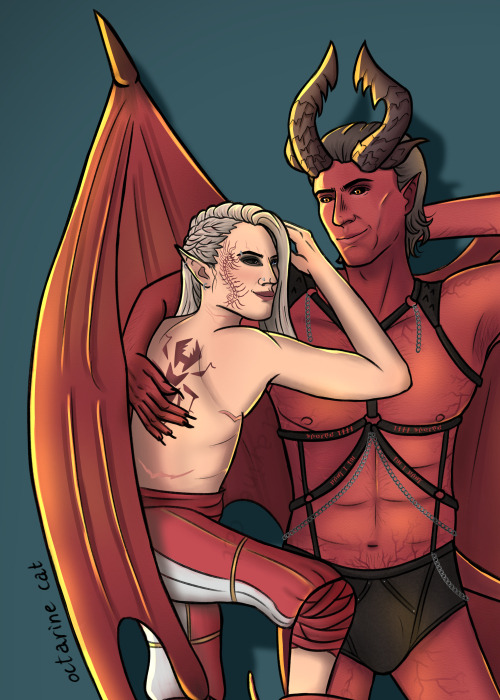
Commission for @russica Naerym and Haarlep plotting something naughty 😈
If you want to commission me too, check this post: here :)
31 notes
·
View notes
Text
WIP Tag Game
Rules: in a new post, show the last line you wrote (or drew) and tag as many people as there are words (or as many as you feel like).
Tagged By:✨ @drizztdohurtin and @viennacherries ✨ (not me, fangirling my mutuals)
No pressure tags:
(Psychs self up to tag a bunch of really dope people) @faerunsbest @cchickki @seabirdsong @arczism @russica @drpepperstrawberryfloat
From the upcoming Chapter 5 of Rolan x Tav Fic, “All I Wanted” and yes I’m heartbroken it’s not smut:
“She sat on a log that served as a bench out front of her little desolate little hovel, as he had so eloquently termed it, letting the moonlight and cool air wash across her skin.”
(Chapter 5 will hopefully be posted on Ao3 during the weekend!)
11 notes
·
View notes
Text
@beardedladyqueen thanks for tagged
Well here we go
Last song: Lunacy of Duke Venomania
Currently watching: I have a lot to do, I can’t sit for a long time, so I just watch videos on YouTube.
Current obsession: Tieflings from BG3 - Rolan, Zevlor, Raphael and Dammon❤️🔥
With my pleasure taged: @iloveundertaesooomuch @immortallaughter @russica @macaronissi-mo @evye @lemonsrosesandlavender
6 notes
·
View notes
Text
youtube
Francesco Araja (1709-1770) - Duo "Prosti.." (Forgive) from opera "Tsefal i Prokris" (1755) - first opera-seria in Russian language. Libretto by Alexander Sumarokov.
Musica Antiqua Russica, directed by Vladimir Shulyakovskiy. Victoria Yevtodieva (soprano), Alexander Detinkin (tenor).
2 notes
·
View notes
Text
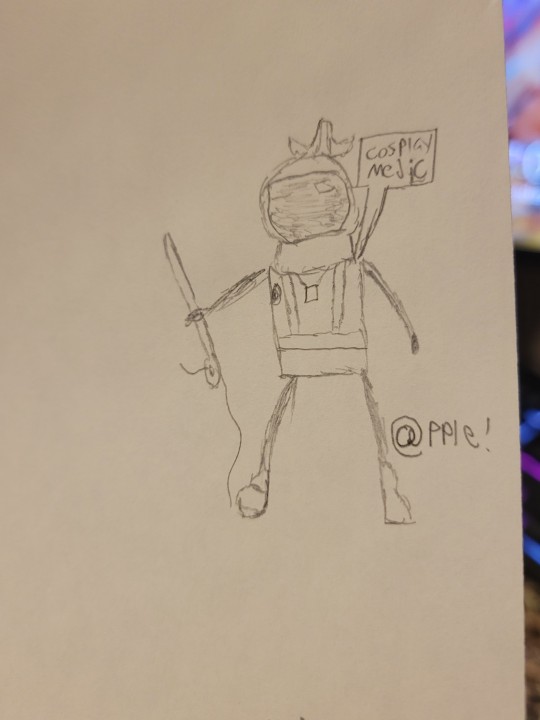

I'm learning to draw. It's hard but I am enjoying it. This is my attempt to draw my partner russica as one of their famous goobers!
0 notes
Text
WHAT DOES PUTIN MEAN WHEN HE TALKS OF THE RUSSIAN WORLD IN RELATION TO UKRAINE
Flexible definition of "Russian World"
Russian World is considered to relate to geographical areas, according to a 2014 study that was posted on the website of the Russkiy Mir Foundation, a company that President Putin established in 2007 to "expand the Russian language." speak Russian, have Russian speakers, or are connected to Russian culture. Russia itself is included in this, as well as territories like northern Kazakhstan, Belarus, the Donetsk and Luhansk regions in Eastern Ukraine, the Transnistria region in Moldova, South Ossetia and Abkhazia in Georgia, Serbia, and Israel.
In theological manuscripts from the 11th century, the phrase first appeared. In a nutshell, the patriarchal description outlines some of the elements of what is sometimes called a Russian soft power. It comprises a geopolitical component that illustrates the three Slavic republics' inescapable ties, as well as a historical continuity from Kyivan Rus, the civilisation that spread throughout most of modern-day Ukraine, Belarus, and Russia in the ninth century.
The announcement of the formation of a Union State by Russia and Belarus in 1996 indicated Moscow's desire to increase its claim to the regions descended from Kyivan Rus.

As a state ideology serving Moscow's objectives, "Russian world"
In 2014, when it invaded Crimea and urged support for the separatist territories of Donetsk and Luhansk in eastern Ukraine, Russia increased its usage of the phrase "Russkiy Mir." The Kyiv administration, according to the Kremlin, has imposed forced Ukrainization, outlawed the use of the Russian language, and discriminated against those who use it, thereby invading the imagined Russian world. The claims of Russia are used to defend its hegemonic rule over vast populations and regions that it regards as crucial to the preservation of its Russian character.
These assertions have long-term repercussions for other regions of the former Soviet sphere, referred to as the "Near Sea" in Moscowian, and where significant ethnic Russian people still speak and use the Russian language.
In fact, Moscow used the same justification for attacking Kyiv in 2014, portraying a pro-Western Ukraine as renunciating its Russian World identity. by embracing "foreign principles" including feminism, LGBTQI rights, and rejecting the designation of Russian as an official language. The phrase "Gayropa," which combines the words "gay" and "European," is often used in social media and pro-Kremlin cultures to denounce what they see as the degradation of the West. The Russian World is directly threatened by the West.
On February 21, Putin delivered a historic address in which he declared that Ukraine is a part of the Russian World and spent more than half of his speech outlining the ancient and present histories of several states and regions in Russia and Ukraine.
0 notes
Photo

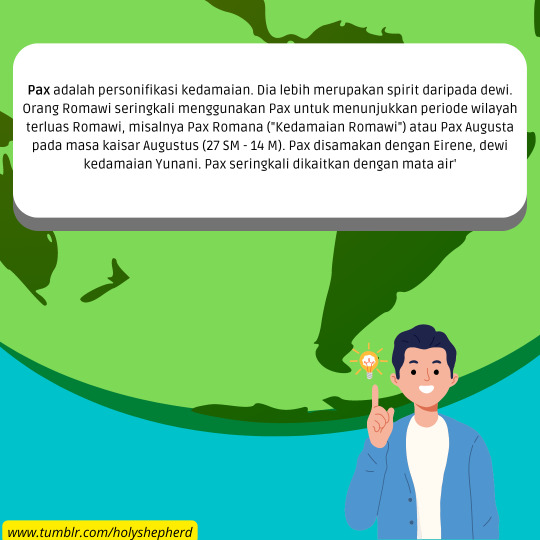
PAX Kuno : Pax Assyriaca - Pax Dei - Pax Hispanica - Pax Islamica - Pax Khazarica - Pax Minoica - Pax Mongolica - Pax Ottomana - Pax Praetoriana - Pax Romana - Pax Russica - Pax Sovietica - Pax Sumerica - Pax Syriana
PAX Modern : Pax Sinica - Pax Europaea - Pax Britannica - Pax Americana - ?
0 notes
Text
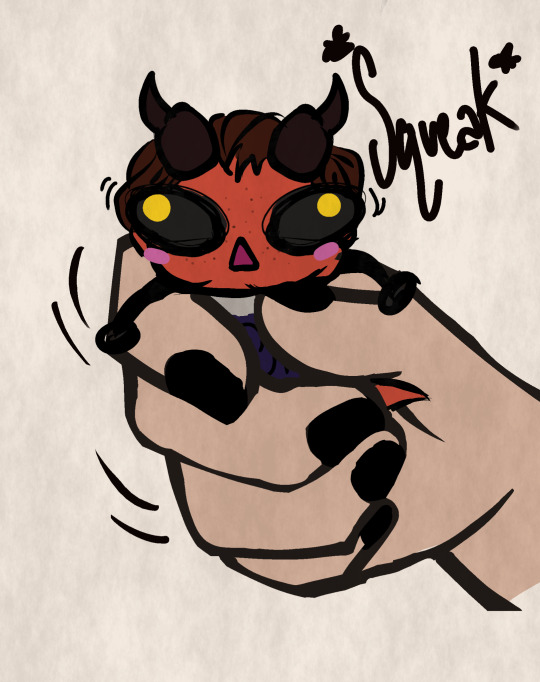


Follow up to the goobers!
#lil goobers#raphael definitely bites#squeez rolan like a bicycle horn#zevlor deserves pets#and smooches#mythings#russica#baldur's gate 3#bg3#doodles#raphael#zevlor#rolan#tieflings#the devil you know
395 notes
·
View notes
Text
“A leaked internal strategy document from Vladimir Putin’s executive office and obtained by Yahoo News lays out a detailed plan on how Russia plans to take full control over neighboring Belarus in the next decade under the pretext of a merger between the two countries. The document outlines in granular detail a creeping annexation by political, economic and military means of an independent but illiberal European nation by Russia, which is an active state of war in its bid to conquer Ukraine through overwhelming force.
(…)
According to the document, issued in fall 2021, the end goal is the formation of a so-called Union State of Russia and Belarus by no later than 2030. Everything involved in the merger of the two countries has been considered, including the “harmonization” of Belarusian laws with those of the Russian Federation; a “coordinated foreign and defense policy” and “trade and economic cooperation … on the basis of the priority” of Russian interests; and “ensuring the predominant influence of the Russian Federation in the socio-political, trade-economic, scientific-educational and cultural-information spheres.”
(…)
To some observers, the strategy confirms what has long been obvious and, at times, openly acknowledged, by both Moscow and Minsk. Rainer Saks, the former head of Estonia’s Foreign Intelligence Service, told Yahoo News that “in the grand scheme of things, this document is no different from what you might think Russia wants from Belarus. Of course, Russia will take control of Belarus, but the question is if it does so at the cost of independence. It is surprising to me why this target — 2030 — is set so far ahead. Why should Russia wait so long?”
(…)
The strategy document, never before made public, was obtained by an international consortium of journalists from Yahoo News, Delfi Estonia, the London-based Dossier Center, the Swedish newspaper Expressen, the Kyiv Independent, Germany’s Süddeutsche Zeitung, and the German radio networks Westdeutscher Rundfunk and Norddeutscher Rundfunk, the Polish investigative outlet Frontstory, the Belarusian Investigative Center and Central European news site VSquare.
The authorship of the strategy document, according to one Western official with direct knowledge of its construction, belongs to the Presidential Directorate for Cross-Border Cooperation, a subdivision of Putin’s Presidential Administration, which was established five years ago. The rather innocuously named directorate’s actual task is to exert control over neighboring countries that Russia sees as in its sphere of influence: Estonia, Latvia, Lithuania, Belarus, Ukraine and Moldova.
The directorate is headed by Alexey Filatov, who reports directly to Dmitri Kozak, the deputy chief of the Presidential Administration. Filatov’s team was tasked to come up with new strategies that would detail Russia’s strategic goals in all six countries, relying on the resources and input of most of the vital Russian state institutions. According to a Western intelligence officer with direct knowledge of the strategy document, Russia’s domestic, foreign and military intelligence services — the FSB, SVR, GRU, respectively — in addition to the General Staff of the Armed Forces, all actively contributed to the Union State plan. The resulting document was presented to Kozak in the fall of 2021, the same source told Yahoo News.
(…)
The concept of a Union State was first introduced in the mid-1990s, in the form of a treaty designed to politically, economically and culturally integrate Russia and Belarus. A federation modeled on the former Soviet Union was created in 1999 with its own governing institutions, including a council of ministers, parliament and high court. But the project fizzled, and full implementation wasn’t discussed in earnest again until 2018, to coincide with Putin’s aggressive geopolitical ambitions.
(…)
In November 2021, Lukashenko and Putin signed an agreement allowing for 28 integration programs, mainly focused on economic and regulatory questions. They also inked a joint military doctrine. Left out were the political aspects of fusing the two countries.
(…)
Russia has been steadily encroaching on the territory of its neighbors, with an emphasis on Russian-speaking populations. Putin invaded and illegally annexed Ukraine’s Crimean peninsula in 2014. That year, the Kremlin fomented, armed and financed a “separatist” movement in Donbas, in eastern Ukraine, drawing from a well-tested playbook for hybrid warfare already long in use in the breakaway territories of Abkhazia and South Ossetia in Georgia, and in Transnistria, Moldova, where 1,500 Russian troops are currently garrisoned. In September 2022, Russia announced it was annexing four regions in southern and eastern Ukraine last year, even as its military was being pushed back in those very areas.
(…)
The leaked document also outlines how Russia’s military presence in Belarus will expand to feature a joint command system and Russian weapons depots. Such a development would be deeply concerning to the NATO members along Belarus’s western border.
“If a strong Russian air defense force is permanently deployed in Belarus, it will also change the defense calculus for Poland, because the Russian-Belarusian force can intercept missiles from Poland from Belarusian territory,” according to András Rácz, a senior research fellow at the German Council on Foreign Relations. “The question from the Visegrad Group side,” Rácz said, referring to the Central European umbrella of the Czech Republic, Hungary, Poland and Slovakia, “is whether combat capable troops will be permanently stationed in Belarus. They already have Russian military objects, but no Russian military bases.”
Anna Maria Dyner, an analyst at the Polish Institute of International Affairs, a Warsaw-based think tank, said Russia's strategic goal is to maintain a permanent Russian military presence in Belarus. “This basically guarantees the realization of the remaining strategic goals of taking political and economic control of the country. This situation guarantees Russia an increase in security stability, that is, first of all, some cover from NATO countries, while flanking the military operation in Ukraine,” she said.
The Belarus strategy document is divided into two parts. The first lists Russia’s goals in the short-term (2022), mid-term (2025) and long-term (2030). These are categorized into three sectors: the political, military and defense sectors; the humanitarian sector; and trade and economy. The second part of the document identifies risks associated with the goals.
For example, the document advocates the “formation of pro-Russian sentiments in political and military elites and the population” by 2022, while at the same time “limiting the influence of ‘nationalist’ and pro-Western forces in Belarus.” It also envisages the completion of the constitutional reform in Belarus that would be predicated on Russian priorities. Such reforms are in keeping with what has already taken place in Belarus in the last year.
(…)
By 2025, the strategy document states, there need to be “sustainable pro-Russian groups of influence in Belarusian politics, military and business.” It also advocates the expansion of Russian military presence in Belarus and the introduction of a simplified procedure for issuing Russian passports to Belarusian citizens.
A Western military officer who was not authorized to speak on the record told Yahoo News that “passportization” is one of the key processes Russia uses to quietly take over sovereign territory. “They used it in Abkhazia as well as in South Ossetia and Eastern Ukraine,” the officer said. “They hand out Russian passports to local people in order to extend their interests in the regions. When needed, they can use their compatriots' rights as a justification to intervene with force.”
The Kremlin has made no secret of its “compatriots policy,” which has evolved to include not just ethnic Russians but anyone who speaks the Russian language. Russian Foreign Minister Sergei Lavrov wrote in an article for Russian newspaper Rossiyskaya Gazeta in 2015 that offering “comprehensive support” to Russian speakers outside Russian Federation territory was “an unconditional foreign-policy priority for Russia.”
Belarus’s political establishment is to eventually fall under the dominion of “stable pro-Russian groups of influence,” the document states. But it’s not only political and military control that Russia wants to have over Belarus.
Another unmistakable aspect of Russia’s slow-motion state capture is the introduction of a single monetary currency. While the document doesn’t explicitly state that this would be the Russian ruble, the implication is obvious, given Russia’s hegemonic role in the relationship.
Indeed, the general context of the strategy doesn’t leave much room for interpretation that Moscow is seeking to gobble up Minsk’s marketplace. The majority of Belarusian exports have always gone to Russia, but with the introduction of Western sanctions on Lukashenko’s government, they became even more crucial. Russia has also propped up its economically straitened neighbor in the form of loans and budget transfers.
Energy integration is another factor for the pending Union State. The document implies that Ostrovets 1, Belarus’s lone nuclear reactor, which was financed by Russia’s state-owned atomiс energy corporation, is intended to be enlisted in a power-sharing scheme between the two countries. Belarus already imports its gas from Russia. According to Dzmitry Kruk, a senior researcher at BEROC, a leading Belarusian economic think tank, currently based in Kyiv, “Russia remains in control of the Belarusian energy sector, further deepening the country’s dependence on Russia. And Belarus will also have to pay for it.” The document also redirects the landlocked Belarus’s cargo shipping from its Baltic neighbors to Russian ports.
A significant part of Russia’s strategy for Belarus focuses on what the document calls “the humanitarian sphere,” a euphemism for Russianizing and controlling the country’s civil society. One stated long-term objective is doubling the number of Belarusian students studying in Russian universities, or “opening of new centers of science and culture” in the Belarusian cities of Mogilev, Grodno and Vitebsk. These centers would be branches of Rossotrudnichestvo, a Russian cultural outreach organization that technically operates under the auspices of Russia’s Foreign Ministry. However, Rossotrudnichestvo is a notorious clearinghouse for Russian intelligence operatives and agents of influence, making Moscow’s capacity to recruit Belarusians to its security organs that much easier.
The Union State program calls for the creation of a network of Moscow-friendly nongovernmental organizations (NGOs), with financial and legal support from Russia to keep them running. This, too, would pose new international security headaches for NATO and the EU. “The Kremlin has long used dirty money, banks, companies, NGOs and law firms to support malign and subversive activities in the West,” John Sipher, a former CIA officer focused on Russia, told Yahoo News. “They’ve had an even easier time in the Russian-speaking countries in their periphery, and what this document outlines is what they’d have liked to do in Ukraine before the war and probably still think they can do now.”
By 2030, the strategy document states, Russia must have “control of the information space” and must establish “a single cultural space” and “common approach to the interpretation of history” in Belarus. One key deliverable in this realm is the predominance of the Russian language over Belarusian — something already largely in place. Russian is enshrined in the Belarusian constitution as one of two state languages. According to a 2019 census, more than 60% of Belarusians claimed Belarusian as their native tongue, but more than 70% of the country indicated that they also speak Russian at home.
(…)
There are also signs, according to analysts and government officials, that Lukashenko does not look at the prospect of evolving from client to vassal with unmixed delight.
“Neither the politicians nor the local oligarchs have a desire to join the Union State,” the Western intelligence source said. “Despite its closeness to Russia, Lukashenko has always emphasized the independence of the country in the past. He and Putin don't like each other very much. Either is waiting for the other to die.”
(…)
Russian troops invaded northern Ukraine from Belarusian territory on Feb. 24, 2022, making a play for Kyiv. Belarusian military installations have been used ever since to fly Russian aerial sorties and launch Russian cruise missiles and drones into Ukraine. Some Western observers have gone so far as to characterize Belarus as a legal co-combatant in Russia’s war of conquest. Following Russia’s invasion, one Western diplomat to the United Nations told Yahoo News, “Putin keeps asking Lukashenko to go in, and Lukashenko keeps telling him he needs ‘three more weeks.’ Then three weeks pass and Belarus still hasn’t gone to war. And so the cycle repeats itself, comically.”
(…)
There have been a few telling episodes, too, of Belarus signaling its stated desire to remain, if not neutral, something short of an active participant in the carnage in Ukraine. In December 2022, a Ukrainian missile attempting to intercept a Russian one landed in Belarus. The incident caused no hiccups in Belarusian state propaganda, which might have otherwise easily turned this into a pretext for attack. Lukashenko has even publicly thanked Ukraine for not submitting to what he characterizes as Western pressure on Ukraine to strike back at Belarus.
He is said to be acutely aware that deploying Belarusian troops across the border would be unpopular and destabilizing to his rule. Acts of sabotage along Belarusian rail lines have been frequent since the start of the war, as have hacks waged by exiled Belarusian IT experts that have halted train cargo carrying materiel to the front. Piotr Żochowski, a senior fellow at the Department for Ukraine, Belarus and Moldova at the Center for Eastern Studies, a Warsaw-based think tank, said: "Lukashenko is trying to build his public authority by telling Belarusians that they will not fight on foreign soil. He just keeps repeating the phrase: ‘If we are attacked, we will defend ourselves.’”
(…)
The war in Ukraine has evidently slowed down the pace of implementing the Kremlin’s plans in Belarus. However, the war has by no means halted them. “The long-term goal to achieve total control over Belarus is still in force and hasn’t changed,” the Western intelligence officer told Yahoo News, adding that Russia continues to bank on its articulated strategy for the Union State and is still working to achieve its benchmarks. “Russia is aware that Belarus is trying to torpedo these processes,” the officer said. “Some of that is visible publicly, for example dragging out the political integration process. Russia continues to pressure Belarus regardless.”
Sergiy Kyslytsya, Ukraine's permanent representative to the United Nations, told Yahoo News: “Belarus is already a de facto Russian colony. And Lukashenko is in a Catch-22. The Russian invasion of Ukraine left him with no options. Putin doesn’t like him. His days are numbered. Lukashenko knows that well."”
1 note
·
View note
Text
Hegemonic peace and empire pdf
HEGEMONIC PEACE AND EMPIRE PDF >>Download (Herunterladen)
vk.cc/c7jKeU
HEGEMONIC PEACE AND EMPIRE PDF >> Online Lesen
bit.do/fSmfG
26.08.2022 — Border policies of empires during hegemonic peace from Pax Accadica to Pax Russica: the impact of 'compatriot' policies on the survival of von S Destradi · 2010 · Zitiert von: 366 — The undistinguished usage of hegemony and leadership goes back to the theory of hegemonic stability (see section 2.2.1). Hegemony is used as a von P Milton · 2019 · Zitiert von: 2 — In the eighteenth-century Holy Roman Empire, natural law was used by for the Empire to achieve security in light of France's hegemonic This book examines the language and the ideology of the Pax Romana, the Pax Britannica and the Pax Americana within the broader contexts of hegemony and von RO Keohane · 2005 · Zitiert von: 16348 — In the preface the author addresses the issue of cooperation after the end of the Soviet empire and with the renewed dominance of the United States, This book examines the language and the ideology of the Pax Romana, the Pax Britannica and the Pax Americana within the broader contexts of 'hegemony' and Education, Militarism, Neoliberalism, and Peace Studies. (). Download (.pdf).von AD MOSES · 2017 · Zitiert von: 10 — The Nazi empire's conquest of Europe and mass crimes during World War II inten peace even though the war itself is lost”; by destroying, disintegrating,
https://www.tumblr.com/panebagohak/697983298882994176/actividad-enzimatica-pdf-files, https://www.tumblr.com/panebagohak/697983439209676800/pl-sql-complete-reference-pdf-file, https://www.tumblr.com/panebagohak/697983577049153536/gilera-vc-200-r-manual-pdf, https://www.tumblr.com/panebagohak/697984054453272576/cours-de-droits-humains-pdf, https://www.tumblr.com/panebagohak/697983139891576832/learn-game-development-with-cocos2d-pdf.
0 notes
Text
Ten songs
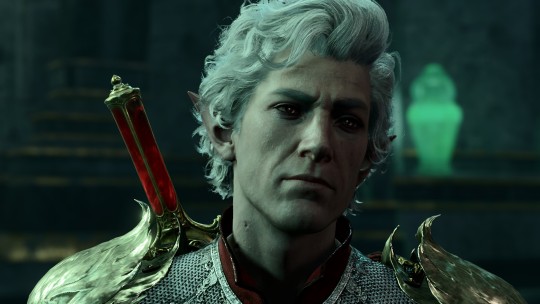


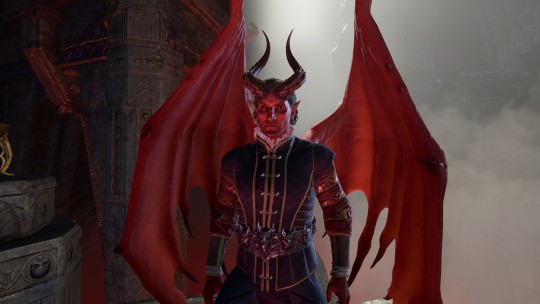


Ten songs that I would like to share with you. I spiced the game a little and chose the songs that I most associate with the characters from BG3 💜 Thank you for tagging me, @beeotis
Gale
2. Astarion
3. Halsin
4. Withers
5. Zevlor
6. Rolan
7. Wyll
8. Minsc
9. Haarlep
10. Raphael
I'm tagging, watch out! @adevilyoudo @russica @sky-kiss @taneysha-pictures @naomisnews @missygoesmeow @kodiakclouds @littleplasticrat and everyone who wants to share their music taste (you may ignore of course) 💜
#bg3#bg3 companions#bg3 gale#bg3 zevlor#bg3 rolan#bg3 raphael#bg3 haarlep#bg3 minsc#tag game#Spotify
19 notes
·
View notes
Photo
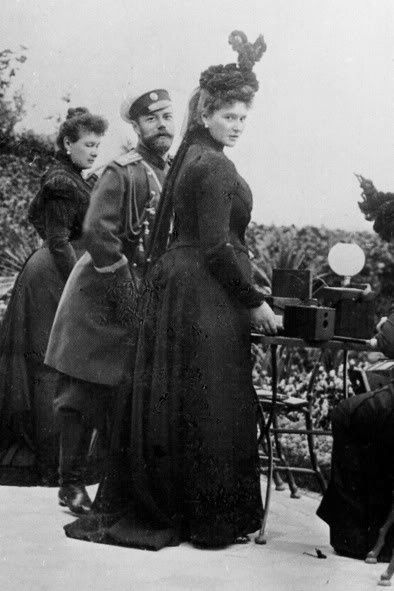
“ Rare photo of a pregnant Tsarina Alexandra Feodorovna, right, with Tsar Nikolai II and Grand Duchess Marie Pavlovna, 1899 ”
Amazing photo! I believe she was pregnant of Maria.
#russica#russia#maria romanov#romanov#alexandra feodorovna#tsarina#tsar nicholas ii#czar#grand duchess#Marie pavlovna#1899#19th century#history#historia#história#storia#l'histoire#historic#histoire#history in pictures#royals#royality
227 notes
·
View notes
Text
Bizarre Request time!
In 2004 there was made a documentary called “Magia Russica” about Russian Animation made during the Soviet Era. The film is originally in Russian and I have been completely unable to find any version online with subtitles (or even find the film at all. It takes a lot of searching to find anything on it apart from a wiki article, its IMDB page and maybe an amazon listing)
Does anyone know where I can get a hold of a subtitle version of Magia Russica?
(it seems to be out of print as well as far as DVD goes)
14 notes
·
View notes